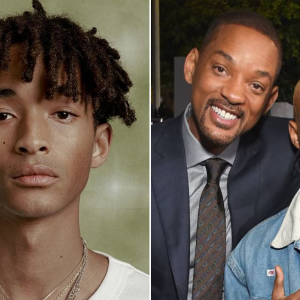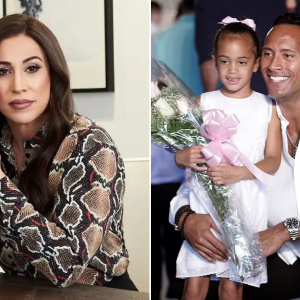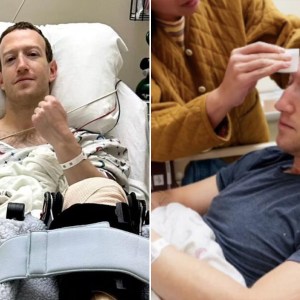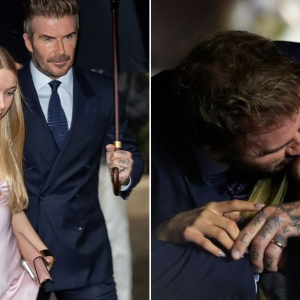:quality(70):focal(2140x747:2150x757)/cloudfront-eu-central-1.images.arcpublishing.com/irishtimes/G6YGECQGVZCCJFLZHLFLGWP3FQ.jpg)
A video did the rounds recently of 18-year-old LeBron James being interviewed live on television before a Los Angeles Lakers play-off game in 2003. Wearing a backwards baseball cap, he’s grinning like a goofy kid from Akron thrilled to be courtside watching Kobe and Shaq in their pomp. When reporter Craig Sager mentions him being talked about as the next Michael Jordan, he casually responds by comparing his skillset more to Magic Johnson and Penny Hardaway. Not in a boastful way. Just matter of fact. A high school baller using Hall of Famers as reference points to help viewers better understand the nature of his impending greatness.
Twenty years after being cast as the most hyped teenager in the history of the sport when Sports Illustrated put him on its cover as “The Chosen One” at a callow 17, cameras captured the NBA’s now all-time leading scorer in the Lakers locker-room the other week, moments after clinching a round one victory over the Memphis Grizzlies. Shirtless, exhausted, and sprawled in a chair, enormous clusters of ice where his knees should be, more medicinal wrapping around his midriff, and worry lines across his forehead. A portrait of the lion in winter, speaking to the cubs scattered around him in their kind of lingo.

“Level 1 complete, it get harder and harder each level, alright?” said James, cautioning team-mates that this victory was a beginning, not an end. “Y’all play Call of Duty. Y’all know what that means going to the next level. Y’all play Mario Brothers, y’all know what it mean in Super Contra when he goes to the next level. So, Level 2 is upon us. Tomorrow, decompress, get away from the game and then we come back and be locked in, all right?”
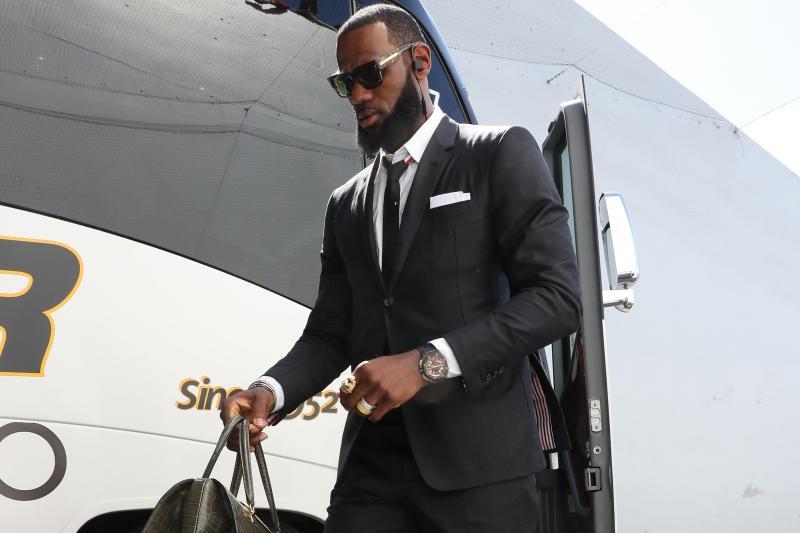
Having lost eight of their first 10 games this season, the Lakers were not supposed to make the playoffs. But, after knocking off the defending champion Golden State Warriors in the second round, they started the best of seven Western Conference finals against the Denver Nuggets on Tuesday night (losing out in game one by 132-126), one of the last four teams standing. If they are underdogs in that match-up, their remarkable turnaround is the latest sleight of hand in James’s career, a Broadway show that remains too box office to think about closing, a drama where storylines write themselves.
:quality(70)/cloudfront-eu-central-1.images.arcpublishing.com/irishtimes/QSO7UVRJZBC7XIJ73ZN3QNSJCI.jpg)
At one point in the campaign, Jabari Smith jnr of the Houston Rockets, a rookie in the league acting equal parts opponent and fan, sidled up to James during a time-out and said, “You played against my dad in your first NBA game.”
“Why you do that to me?” asked James.
“You feel old, don’t you?” smiled Smith.
The elder statesman responded by dropping 48 points and the Smiths became the ninth father-son notch on his belt. That number is only likely to grow over the coming seasons as he plays on into a third decade, motivated, in large part, by a desire to one day share a court with his own kid. Bronny James will play a season of college ball with USC this coming year before declaring for the 2024 NBA Draft. If all goes to plan, his father (who has already stated his child is a better point guard than some in the league) will then engineer a trade to whatever club picks the son up. A noble way to bookend his career.
James has endured as a force while speaking out eloquently on social justice issues (turning him into a right-wing hate figure)
With a mother who was 16 years old and alone when she gave birth, James grew up in crippling poverty, often sleeping on his friend’s couches or in the homes of his coaches. In one school year, his peripatetic existence caused him to miss 83 days. Aside from winning four rings, breaking myriad records, and somehow managing to live up to his advance billing, he is the first active NBA player to become a billionaire. A feat achieved through endorsement deals, starting his own movie and television production company, and making all manner of canny investments in everything from Liverpool to Lyft to pickleball.
:quality(70)/cloudfront-eu-central-1.images.arcpublishing.com/irishtimes/6XL3NTINIZCVJCH2QCMVIOILN4.jpg)
Perhaps his smartest investment has been in himself. James is estimated to spend $1.5 million (€1.37 million) a year making sure he wrings every drop from his body as the years go by. The money goes on employing an army of full-time nutritionists, masseuses, and physical trainers, and purchasing the most up-to-date training technology, such as personal hyperbaric and cryotherapy chambers for his Beverly Hills mansion, the one-time home of Katherine Hepburn. An obsession with stuff like biomechanics has contributed to him still being able to dominate games at a time when his physical powers should be seriously waning.
James has endured as a force while speaking out eloquently on social justice issues (turning him into a right-wing hate figure), building a school for underprivileged kids in Ohio, and guaranteeing to fund the college education of hundreds more growing up in tough circumstances like he did. Better yet, he has avoided the fate of other ageing GOATs. He has not degenerated into parody like Ronaldo, wasted the final years of his club career at the world’s most expensive joke shop like Messi, or squandered a decade of his prime to self-destruction like Tiger Woods.
“What is a hero but someone who stands up for those who can’t?” wrote Kareem Abdul Jabbar, previous holder of the NBA scoring record. “Who embodies our cherished ideals of sportsmanship: fair play, hard work, and compassion? That pretty much describes the LeBron James I’ve come to know.”
